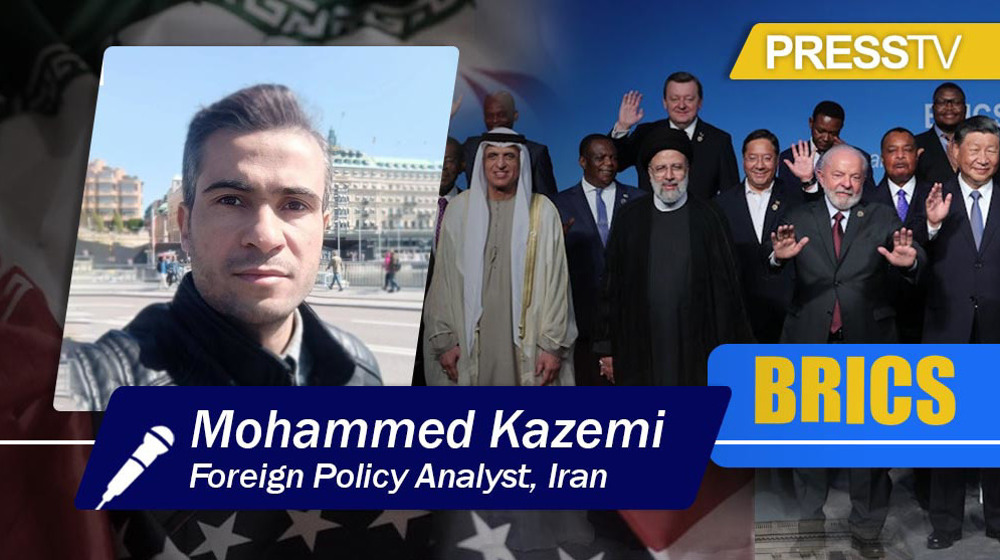By Alireza Hashemi
Iran’s accession to the BRICS grouping has made the revival of the 2015 nuclear deal inconsequential, as Tehran can now avail economic benefits without having to slow down its nuclear progress, says an expert.
Mohammed Kazemi, a Tehran-based foreign policy analyst who has extensively researched the impact of US sanctions, told the Press TV website that the expansion of BRICS can be a game-changer.
“Iran aimed to offer confidence-building nuclear concessions in order to get economic benefits. If it can get those economic benefits through BRICS or the Shanghai Cooperation Organization, there will be less motivation to engage in nuclear talks,” Kazemi said.
At the three-day annual summit last month, BRICS invited Iran, Saudi Arabia, the UAE, Egypt, Ethiopia and Argentina to join the bloc with effect from January 1, 2024.
The group comprising five major economies – China, Brazil, South Africa, Russia, and India – agreed on “the guiding principles, standards, criteria and procedures of the BRICS expansion process”, during the meeting in Johannesburg.
Iran’s President Ebrahim Raeisi, who participated in the summit, upon his return to Tehran said the country’s accession to the group – which now accounts for 36 percent of global GDP and 47 percent of the world population – will significantly boost its political and economic clout.
It comes amid a stalemate in talks aimed at the revival of the Joint Comprehensive Plan of Action (JCPOA) and the removal of crippling sanctions on Iran due to Washington’s failed policy of procrastination.
The talks have been stalled since August last year with the Biden administration showing a lack of political will to undo the damage caused to the multilateral agreement by the previous US administration.
The Johannesburg Declaration adopted at this year’s BRICS summit seeks to spur the development of BRICS member states and pave way for the more inclusive economic policies for all members.
Kazemi said Iran’s BRICS membership sends a clear message to the international community, especially the Global South, that they can rely on Iran as an economic partner.
“Iran’s BRICS membership means the strategy of isolation has failed and now Iran can be counted on for playing a major role in the world,” the political analyst told the Press TV website.
However, he hastened to add that it will take some time for the grouping to show its impact in broadening Iran’s economic relations.
“The main goal of those who impose sanctions is not to immediately make nations poor, but to isolate them in a span of two or three decades and render them unable to develop themselves,” he said.
Kazemi cited the first major anti-Iran US sanction law, the Iran Sanctions Act of 1996, which only banned investments in Iran’s oil industry and not the country’s oil trade, showing that the authors sought to gradually root out Iran’s petroleum industry.
The Iranian analyst said Iran’s BRICS membership has created a big crack in the wall of the Western sanctions regime, encouraging nations to ignore the bans and engage in trade with Iran.
The US, he asserted, enforces its sanctions largely through mechanisms it has dominated, like payment mechanisms and countries seeking to nullify sanctions should come up with alternative mechanisms.
“Iran and other countries need to create alternative mechanisms that rival those acting under the US-led economic order. Fortunately, BRICS is serious about creating such mechanisms. If created, this can prove the end of the West’s global economic hegemony,” he remarked.
Asked what potential measures the West might adopt to maintain its hegemony, Kazemi said they would push countries to use their system and prevent the popularity of alternative systems.
“They want countries to trade under the system they control. For example, they want oil producers like Iran to sell their oil within the traditional system and using the US dollar,” he noted.




